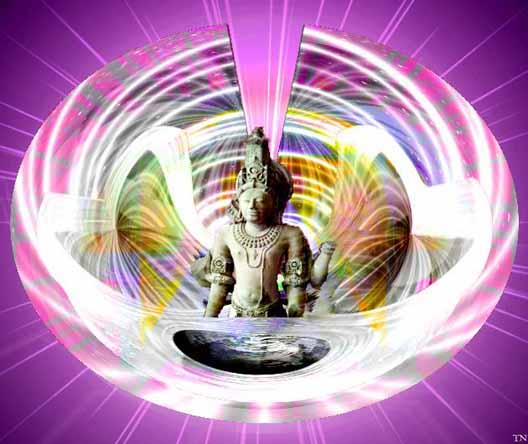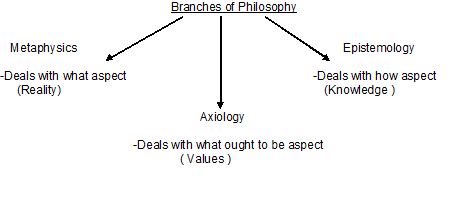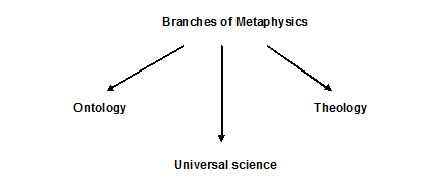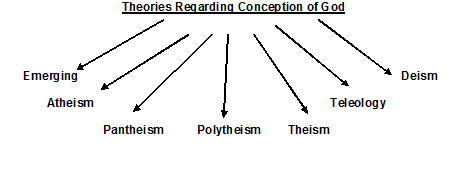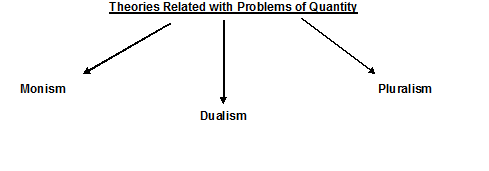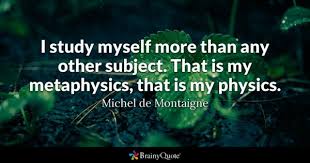Dr. V.K.Maheshwari, M.A(Socio, Phil) B.Se. M. Ed, Ph.D
Former Principal, K.L.D.A.V.(P.G) College, Roorkee, India
“Dubito ergo cogito; cogito ergo sum.”
( I doubt, therefore I think; I think therefore I am )
Rene Descartes
French Mathematician, Philosopher and Scientist
Philosophy is the systematic inquiry into the principles and presuppositions of any field of study. From a psychological point of view, philosophy is an attitude, an approach, or a calling to answer or to ask, or even to comment upon certain peculiar problems. Philosophy is a persistent attempt to gain insight into the nature of the world and of ourselves by means of systematic reflection.
Philosophy starts with bewilderment, astonishment, amazement about the world, life, and ourselves. Philosophy arises from the workings of an inquisitive mind which is bewildered by seemingly common things or by those that appear to be entirely impractical. It emerges out of readiness to follow the call of human intellectual curiosity beyond common sense acquaintanceship with the world
Philosophy does not stay by pure bewilderment and amazement. Philosophers articulate their initial amazement by formulating questions (mostly what- and why-questions and what ought to be) that guide their curiosity toward comprehension of the problem.
“The great virtue of philosophy is that it teaches not what to think, but how to think. It is the study of meaning, of the principles underlying conduct, thought and knowledge. The skills are the ability to analyze, to question orthodoxies and to express things clearly
When we speak of philosophy we use a term which may be viewed in two senses. The first of these is that of the word itself which literally means “ love of wisdom” .But to love wisdom does not necessarily make one a philosopher .Today, we think of philosophy in a more limited sense as man’s attempt to give meaning to his existence through the continued search for a comprehensive and consistent answer to basic problems .It is this second sense of the word which makes the philosopher an active person; one who seeks answers, rather than one who simply sits around engaging in idle and frivolous speculation. Nowadays, most philosophers are actively concerned with life. THEY SEEK ANSWERS TO BASIC PROBLEMS. Thus we find that philosophers are doing as well as thinking, and it is their thinking which guides their doing .What they do is rooted in the search for answers to certain types of problems and the tentative answers they have formulated.
Philosophy is a persistent attempt to gain insight into the nature of the world and of ourselves by means of systematic reflection. The three great problems of philosophy are the problems of reality, knowledge, and value-Philosophy deals with these in three aspects. The three great problems of philosophy are the problems of reality, knowledge, and value-
This way philosophy deals with three basic areas
- .Area related with what aspect ,it is METAPHYSICS
- .Area related with how aspect ,it is EPISTOMOLOGY
- Area related with what ought to be aspect, it is AXIOLOGY
Metaphysics: The Study of Reality
Metaphysics (derived from the Greek words “ta meta ta physika biblia”) – meaning ‘the book that follows the physics book’. Metaphysics is the branch of philosophy that goes beyond the realms of science and is concerned with the study of “first principles” and “being” . Meta means above; this is the study of the nature of things above physics.(What comes after Physics) Metaphysics covers the kinds of things most people probably think of if asked what philosophy covers
Metaphysics is the branch of philosophy that goes beyond the realms of science. It is concerned with answering the questions about identity and the world. The name is derived from the Greek words, Meta which means beyond or after, and Physika which means physics. Aristotle, one of the most well-known philosophers, acknowledged Thales as the first known meta physician. The main branches of metaphysics are ontology, natural theology and universal science.
In popular parlance, metaphysics has become the label for the study of things which transcend the natural world — that is, things which supposedly exist separately from nature and which have a more intrinsic reality than our natural existence. As a result, the popular sense of metaphysics has been the study of any question about reality which cannot be answered by scientific observation and experimentation.
The branch of philosophy which deals with the problem of reality what is the nature of the universe in which we live? Or in the last analysis, what is real? Is termed as Metaphysics Metaphysics as a disicpline was a central part of academic inquiry and scholarly education even before the age of Aristotle, who considered it “the Queen of Sciences.” Its issues were considered no less important than the other main formal subjects of physical science, medicine, mathematics, poetics and music. Since the beginning of modern philosophy during the seventeenth century, problems that were not originally considered within the bounds of metaphysics have been added to its purview, while other problems considered metaphysical for centuries are now typically subjects of their own separate regions in philosophy,.
In popular parlance, metaphysics has become the label for the study of things which transcend the natural world — that is, things which supposedly exist separately from nature and which have a more intrinsic reality than our natural existence. This assigns a sense to the Greek prefix meta which it did not originally have, but words do change over time. As a result, the popular sense of metaphysics has been the study of any question about reality which cannot be answered by scientific observation and experimentation.
Questions Asked in Metaphysics:
- Do abstract concepts (like numbers) really exist?
- Does Free Will exist?
- Is there such a process as cause and effect?
- What is out there?
- What is reality?
Branches of Metaphysics:
Metaphysics covers those ‘big questions’, such as, is there God, why are we here, what is the ultimate nature of the universe, and so on. Another important area of metaphysics is the nature of substance, that is, what is the universe really made of,
Aristotle’s book on metaphysics was divided into three sections: ontology, theology, and universal science.
Theology, of course, is the study of gods — does a god exist, what a god is, what a god wants, etc.
“Universal science” is a bit harder to understand, but it involves the search for “first principles” — things like the origin of the universe, fundamental laws of logic and reasoning, etc.
Because of this, these are the three traditional branches of metaphysical inquiry there, what are its properties, etc.
Ontology
The word is derived from the Greek terms on, which means “reality” and logos, which means “study of.”
Ontology deals with the study of the nature of reality: what is it, how many “realities” are. Ontology is the branch of philosophy which deals with the study of the nature of reality: what is it, how many “realities” are there, what are its properties, etc. The word is derived from the Greek terms on, which means “reality” and logos, which means “study of.” Atheists generally believe that there is a single reality which is material and natural in nature.
Ontology features in the Samkhya school of Hindu philosophy from the first millennium BCE. The concept of guṇa which describes the three properties (sattva, rajas and tamas) present in differing proportions in all existing things, is a notable concept of this school.
It is the theory of reality, the inquiry into what is real as opposed to what is appearance, either conceived as that which the methods of science presuppose, or that with which the methods of science are concerned; the inquiry into the first principles of nature; the study of the most fundamental generalizations as to what exists, and the meaning of existence as such. and the questions relating,
- Space-time or Nature as identical with existence. to explain reality in terms of matter or physical energy. (e.g., naturalism and physical realism).
- Explanation regarding Spirit or God as identical with existence. To explain Existence in terms of Mind or Spirit, or to be dependent upon Mind or Spirit. (Especially true of idealism.)
- To evaluate Existence as a category and its validity. As held by those, especially the pragmatists, who insist that everything is flux or change and there is nothing which fits into the category of existence in any ultimate sense.
Types of Ontology
Philosophers can classify ontologies in various ways, using criteria such as the degree of abstraction and field of application:
- Domain ontology: concepts relevant to a particular topic, domain of discourse, or area of interest, for example, to information technology or to computer languages, or to particular branches of science
- Interface ontology: concepts relevant to the juncture of two disciplines
- Process ontology: inputs, outputs, constraints, sequencing information, involved in business or engineering processes
- Upper ontology: concepts supporting development of an ontology, meta-ontology
Theology
The word “theology” comes from two Greek words that combined mean “the study of God.” Theology is derived from the Greek theologia (θεολογία), which derived from Τheos (Θεός), meaning “God“, and -logia (-λογία),[4][5]meaning “utterances, sayings, or oracles” (a word related to logos [λόγος], meaning “word, discourse, account, or reasoning“) which had passed into Latin as theologia and into French as théologie. The English equivalent “theology” (Theologie, Teologye) had evolved by 1362.[6] The sense the word has in English depends in large part on the sense the Latin and Greek equivalents had acquired in patristic and medieval Christian usage, although the English term has now spread beyond Christian contexts.
Augustine of Hippo defined the Latin equivalent, theologia, as “reasoning or discussion concerning the Deity”;[7] Richard Hooker defined “theology” in English as “the science of things divine.
Theology is the study of deities or their scriptures in order to discover what they have revealed about themselves. Theology, of course, is the study of gods — does a god exist, what a god is, what a god wants, etc. Every religion has its own theology because its study of gods, if it includes any gods, will proceed from specific doctrines and traditions which vary from one religion to the next. Since atheists don’t accept the existence of any gods, they don’t accept that theology is the study of anything real. At most, it might be the study of what people think is real and atheist involvement in theology proceeds more from the perspective of a critical outsider rather than an involved member.
search for “first principles” — things like the origin of the universe, fundamental laws of logic and reasoning, etc. For theists, the answer to this is almost always “god” and, moreover, they tend to argue that there can be no other possible answer. Some even go far as to argue that the existence of things like logic and the universe constitute evidence of the existence of their god.
Universal science-
niversal science (German: Universalwissenschaft; Latin: scientia generalis, scientia universalis) is a branch of metaphysics. In the work of Gottfried Wilhelm Leibniz, the universal science is the true logic. Plato‘s system of idealism, formulated using the teachings of Socrates, is a predecessor to the concept of universal science. It emphasizes on the first principles which appear to be the reasoning behind everything, emerging and being in state with everything.
The branch of “universal science” is a bit harder to understand, but it involves the search for “first principles” — things like the origin of the universe, fundamental laws of logic and reasoning, etc. For theists, the answer to this is almost always “god” and, moreover, they tend to argue that there can be no other possible answer. Some even go far as to argue that the existence of things like logic and the universe constitute evidence of the existence of their god
Originally, the idea of Universal Science came from Plato’s system of idealism, formulated using the teachings of Socrates. it - moves beyond the compartmentalization of standard science, and seeks to provide a bigger picture, even a complete picture, of the cosmos and all it’s component realities. As such Unified Science tends towards grand theories of metaphysics, and estoteric world- views. It would however be simplistic and incorrect to call theories of universal science ” esoteric” and conventional science ” exoteric”. Rather universal paradigms of science are more strongly intuitive based, and in many cases are science-inspired systems of metaphysics.
Theories of Metaphysics-
Theories of the nature of reality-
( Cosmology )
Theories of the nature of the cosmos and explanations of its origin and development. It deals with the origin and structure of the universe. It accepts the principles of science and attempts to find the principles of existence, in whatever form they may take.
Some considerations in cosmology are:
a . Causality.
The nature of cause and effect relationship, the nature of time and the nature of space. Causality (also referred to as causation, or cause and effect) is what connects one process (the cause) with another process or state (the effect),[ where the first is partly responsible for the second, and the second is partly dependent on the first. In general, a process has many causes,[2] which are said to be causal factors for it, and all lie in its past. An effect can in turn be a cause of, or causal factor for, many other effects, which all lie in its future. Multiple philosophers have believed that causality is metaphysically prior to notions of time and space.
Causality is an abstraction that indicates how the world progresses, so basic a concept that it is more apt as an explanation of other concepts of progression than as something to be explained by others more basic.
b Evolutionism
Universe evolved by itself. ”Evolutionism” means different things to different people. Evolutionism describes the belief in the evolution of organisms. Its exact meaning has changed over time as the study of evolution has progressed. In the 19th century, it was used to describe the belief that organisms deliberately improved themselves through progressive inherited change.
c .Creationism. The universe came to be as the result of the working of a creative cause or Personality. A doctrine or theory holding that matter, the various forms of life, and the world were created by God out of nothing and usually in the way described in Genesis.
Theories of nature of man as one important aspect of Reality.
The problem of essential nature of the self. There are no particular terms but there are divergent answers which can be identified with general viewpoints.
- The self is a soul, a spiritual being. A principle of idealism and spiritual realism
- The self is essentially the same as the body. A principle of naturalism and physical realism
- The self is a social-vocal phenomenon. A principle held especially by experimentalists
Theories of Problem of the Relation of Body and Mind
Interactionism.
Mind and body are 2 different kind of reality, each of which can affect the other. Interactionism or interactionist dualism is the theory in the philosophy of mind which holds that matter and mind are two distinct and independent substances that exert causal effects on one another. Interactionism is a dualist position in the philosophy of mind which argues that
(1) mind and body are separate, but that
(2) there is causal interaction between the two. Cartesian dualism, the position of René Descartes is the most famous example of interactionism.
Parallelism.
Mind and body are two different kinds of reality which do not and cannot affect each other. But in some unknown way, every mental event is paralleled by a corresponding physical event. parallelism (or simply parallelism) is the theory that mental and bodily events are perfectly coordinated, without any causal interaction between them. Parallelism, or psychophysical parallelism (meaning that mind and body are parallel) is a form of dualism which denies any interaction between mind and body.
Parallelism is a difficult position to hold, since it does little to account for the fact that the brain and mind seem to regularly interact, and that changes in one appear to affect the other. If the two are separate substances in a dualist view, then the idea that there is no causality between them, yet obvious changes in both simultaneously, seems counter-intuitive. For this reason it is not a commmonly held belief, but merely a presentation of the third possibility, the others being two-way interaction (as in interactionism) and one-way interaction, as in most forms of physicalism.
Epiphenomenalism.
Mind is merely a function of the brain, an overtone accompanying bodily activity. It is an onlooker at events, never influencing them. Epiphenomenalism is a position in the philosophy of mind according to which mental states or events are caused by physical states or events in the brain but do not themselves cause anything. Epiphenomenalism is a theory concerning the relation between the mental and physical realms, regarded as radically different in nature. The theory holds that only physical states have causal power, and that mental states are completely dependent on them. The mental realm, for epiphenomenalists, is nothing more than a series of conscious states which signify the occurrence of states of the nervous system, but which play no causal role.
Double Aspect Theory.
Double-aspect theory, also called dual-aspect theory, type of mind-body monism. According to double-aspect theory, the mental and the material are different aspects or attributes of a unitary reality, which itself is neither mental nor material. Mind and body are two aspects of a fundamental reality whose nature is unknown. In the philosophy of mind, double-aspect theory is the view that the mental and the physical are two aspects of, or perspectives on, the same substance.
Emergence Theory.
Mind is something new which has been produced by Nature in the evolutionary process, neither identical with body, parallel to it, nor wholly dependent upon it. The basic idea of emergence is that there are properties – perhaps even “laws” – at the upper hierarchical levels of nature that are not derivable from or reducible to the properties and laws of the lower levels. The most central concept in this new emergentism is irreducibility. The idea is that although mental properties depend on physical properties and supervene on them, they can never be reduced to them.
Spiritualism
Spiritualism is a philosophy that attempts to understand people, their physical, intellectual, moral, and spiritual being. As Spirit is the moving force of the Universe, so Spiritualist philosophy embraces the whole realm of nature. (A definition common to most idealists and spiritual realists.) Mind is more fundamental than body. The relation of body and mind is better described as body depending upon mind, as compared to the common-sense description according to which mind depends upon body. Spiritualism. Spiritualism, in philosophy, a characteristic of any system of thought that affirms the existence of immaterial reality imperceptible to the senses.
Theories of problem of freedom
Determinism.
Man is not free. All of his actions are determined by forces greater than he is. Determinism, in philosophy, theory that all events, including moral choices, are completely determined by previously existing causes. The theory holds that the universe is utterly rational because complete knowledge of any given situation assures that unerring knowledge of its future is also possible.
Free Will.
Man has the power of choice and is capable of genuine initiative. Free will is the ability to choose between different possible courses of action unimpeded. Free will is closely linked to the concepts of responsibility, praise, guilt, sin, and other judgements which apply only to actions that are freely chosen. It is also connected with the concepts of advice, persuasion, deliberation, and prohibition. Traditionally, only actions that are freely willed are seen as deserving credit or blame. There are numerous different concerns about threats to the possibility of free will, varying by how exactly it is conceived, which is a matter of some debate.
Third alternative
There is a third alternative proposed especially by the experimentalists, for which there is no name. Man is neither free nor determined; but he can and does delay some of his responses long enough to reconstruct a total response, not completely automatic but not free, which does give a new direction to subsequent activity. n any conflict, the 1st Alternative is my way, and the 2nd Alternative is your way. The usual outcomes are either a war or a compromise. Compromise stops the fight — but without breaking through to amazing new results. A 3rd Alternative is that kind of breakthrough.
3rd Alternative thinking doesn’t just resolve a conflict, it transforms the conflict. It’s not about putting Band-Aids on the old reality, it’s about creating a new reality. With a compromise we all lose something, but with a 3rd Alternative we all win.
Theories Regarding Conception of God
B. Atheism. There is no ultimate reality in or behind the cosmos which is Person or Spirit. Atheism is, in the broadest sense, the absence of belief in the existence of deities. Less broadly, atheism is the rejection of belief that any deities exist. … Atheism is contrasted with theism, which, in its most general form, is the belief that at least one deity exists.
G. Deism. God exists quite apart from, and is disinterested in, the physical universe and human beings. But He created both and is the Author of all natural and moral law. Deism is the belief in a supreme being, who remains unknowable and untouchable. God is viewed as merely the “first cause” and underlying principle of rationality in the universe. Deists believe in a god of nature — a noninterventionist creator — who permits the universe to run itself according to natural laws.
C. Pantheism. a doctrine which identifies God with the universe, or regards the universe as a manifestation of God.
the worship or tolerance of many gods. All is God and God is all. The cosmos and God are identical. Pantheism, the doctrine that the universe conceived of as a whole is God and, conversely, that there is no God but the combined substance, forces, and laws that are manifested in the existing universe. The cognate doctrine of panentheism asserts that God includes the universe as a part though not the whole of his being.
A. The conception of God as emerging, for which there is no common name. God is evolving with the cosmos; He is the end toward which it is moving, instead of the beginning from which it came. God is affected by the pain of creatures, is genuinely responsive to their calls, acquires experiences as a result of these interactions that were not present beforehand — all ideas familiar to readers of process theology.
D. Polytheism. Spiritual reality is plural rather than a unity. There is more than one God. Polytheism is the worship of many gods. Polytheism (from the Greek: polus, many, and theos, god) refers to belief in, or worship of, multiple gods or deities. This mode of belief is an extremely common form of religious expression. Most ancient religions involved belief in pantheons of deities ruling over various aspects of life. Further, these polytheistic beliefs remain a vital part of Hinduism, Shintoism and many other religious traditions into the present day.
The term “polytheism” is sometimes applied to a wide variety of religious traditions with a range of divergent theological stance
E. Theism. The term theism (from the Greek theos, or “god”) commonly refers to belief in God, the view that all finite things are dependent in some way on one supreme, self-existent reality who is typically spoken of as having personal identity Ultimate reality is a personal God who is more than the cosmos but within whom and through the cosmos exists. Theism, the view that all limited or finite things are dependent in some way on one supreme or ultimate reality of which one may also speak in personal terms.
F. Teleology. Philosophies holding that there has been purpose in the universe from its beginning, and /or purpose can be discerned in history, are teleological philosophies. Considerations as to whether or not there is purpose in the universe. Teleology or finality is a reason or explanation for something in function of its end, purpose, or goal. It is derived from two Greek words: telos and logos. A purpose that is imposed by a human use, such as that of a fork, is called extrinsic.Philosophies holding that the world is what it is because of chance, accident, or blind mechanism are no teleological.
Theoretical Considerations relating to the constancy, or lack of it, in reality.
Absolutism.
Fundamental reality is constant, unchanging, fixed, and dependable
Relativism.
Reality is a changing thing. So called realities are always relative to something or other.
Theories Related with Problems of quantity. Consideration of the number of ultimate realities, apart from qualitative aspects.
Monism.
A theory or doctrine that denies the existence of a distinction or duality in a particular sphere, such as that between matter and mind, or God and the world.The doctrine that only one supreme being exists.
Reality is unified. It is one. It is mind, or matter, or energy, or will but only one of these.
Dualism.
Dualism in Metaphysics is the belief that there are two kinds of reality: material (physical) and immaterial (spiritual). In Philosophy of Mind, Dualism is the position that mind and body are in some categorical way separate from each other, and that mental phenomena are, in some respects, non-physical in nature. Reality is two. Usually these realities are antithetical, as spirit and matter, good and evil. Commonly, the antithesis is weighted, so that one of the two is considered more important and more enduring than the other.
Pluralism. Pluralism is a term used in philosophy, meaning “doctrine of multiplicity”, often used in opposition to monism (“doctrine of unity”) and dualism (“doctrine of duality”). The term has different meanings in metaphysics, ontology, epistemology and logic Reality is many. minds, things, materials, energies, laws, processes, etc., all may be considered equally real and to some degree independent of each other.
References
- Butler, J.Donald, Four Philosophies and Their Practice in Education and Religion. New York: Harper & Row, Publishers, 1957
- Cotter, A.C. ABC of Scholastic Philosophy. Weston, Massachusetts: Weston College Press, 1949
- Maritain, Jacques,” Thomist views on Education,” Modern Philosophies of Education. National Society for the Study of Education, Fifty-Fourth yearbook, Part I. Chicago: University of Chicago Press, 1955.
- Weber, Christian O., Basic Philosophies of Education. New York : Holt, Rinehart and Winston, Inc., 1960. This book, especially in chapters 11-
- Broudy, Harry S., Building a Philosophy of Education. Englewood Cliffs, N.J. Prentice-Hall, Inc., 1961..
- Frank Thilly, “A History of philosophy”, Central Publishing House, Allahabad.
- Rusk, R.R., “Philosophical Basis of Education” p-68, footnote, London, University of London Press, 1956.
Acknowledgement
Mrs. Manjul Agarwal for being scribe for this article.

